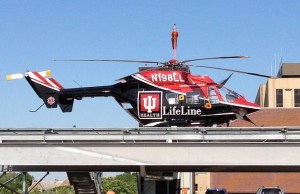 In the medical world many phrases and words are shortened for convenience. One very important initalism is a DNR order, or Do Not Resuscitate.
In the medical world many phrases and words are shortened for convenience. One very important initalism is a DNR order, or Do Not Resuscitate.
Definition: Written instructions from a physician to other health care providers informing them Not to perform procedures to restore normal breathing.
Including:
- Electric shock to restart the heart
- mouth-to-mouth breathing and pressure to the chest (CPR)
- breathing tubes to open the airways
- Powerful medications
DNR orders can be written by a doctor after the patient or their family request the documentation. This decision is usually made if the patient is nearing the end of life and will most likely not improve. Physicians go over the pros and cons with the patient to make sure they want the orders implemented. Life saving treatment will be preformed, unless a patient has DNR orders in place. The patient must consent to DNR orders, physicians cannot make the decision for the patient.
Circumstances or illnesses that may involve a DNR order would be, multiple organ failure or cardiac arrest. If a patient receives CPR during one of these situations they may live in sever anguish, making the end of life very difficult.
The DNR order was first described by the American Heart Association(AHA). They acknowledged that various patients who received these life saving techniques were living with pain and suffering afterwards. Documentation for DNR orders were established. More recently the AHA is asking for physicians to refer to DNR as DNAR, Do Not Attempt Resuscitation. They consider it to be easier for the patients and their families to understand.
A patients can include a DNR order in their living will. They can also carry the document as a card in their wallet or wear it as a bracelet. People can feel at ease knowing that their end of life care is being carried out the way they wish.
I do find your explanation of DNR/DNAR very thorough, easy to understand, and the quality of information is great. I do find it interesting that in a country that has so much involvement in life-altering choices, there is no movements against DNR/DNAR. If you want to have an abortion millions of people disagree with you and it takes an act of legislature to ensure your rights. If you try to get assistance on ending your life there will be trials and imprisonment for whoever helps. If you feel like you are too old you can choose to have a DNAR and everyone is supposed to be alright with your choice. The doctors say that it is your choice and you have the right.
I know that some agree with the DNR choice, but people can live longer than ever in history and we are coming up with exercises and gathering information that keeps the mind strong.(http://www.everydayhealth.com/longevity/mental-fitness/brain-exercises-for-memory.aspx) With better cognitive abilities than previous generations people can continue to be valuable and functioning well into the later years of life. With the ability to enjoy your later years of life why would someone want to end their life prematurely? Medicine has come a long way and so has vaccines and genetic mapping. These useful tools can enlarge a person’s lifespan for many years and help those family members that are curious about genetic mapping get answers.
The choice is still yours and no one seems to dispute it. I just feel it is a waste of human life to allow this practice to go unchallenged. People can be useful late in life. There is much we don’t know about this population and can be researched if more people were willing to consent to research. By allowing this population to make this choice we are missing out on a lot of potential research subjects.
LikeLike
I felt that your post about DNR was very informative and easy to follow. I have currently work over at Reid hospital in the transportation department for about 3 years now. DNR is one of those abbreviation that you hear on a regular basis. Mainly for my experiences I have found that we use DNR terminology mainly to convey information to fellow employees. This way when ever some one new comes in they tell them that the patient is DNR so they don’t try to perform any kind of CPR or other life resuscitation action. The only time you really hear it being told to a patient or a patients family, the doctor will go in and fully explain every about the terminology and in turn put the orders in the cart if needed. one thing i did find interesting about your article was when you talked about now people became confused with the DNR and the AHA wanting physicians to use DNAR instead. i have been around a lot of physicians and have never heard heard it be called this. Is this term growing popularity in other areas of the country?
LikeLike